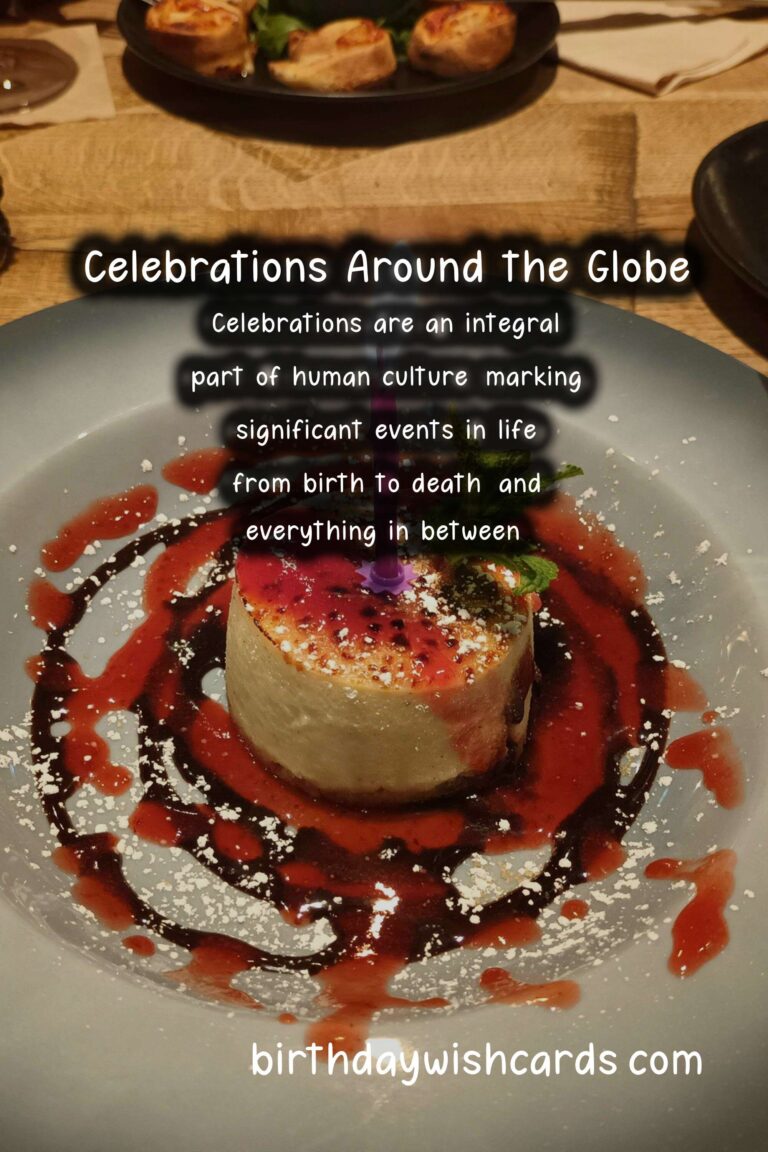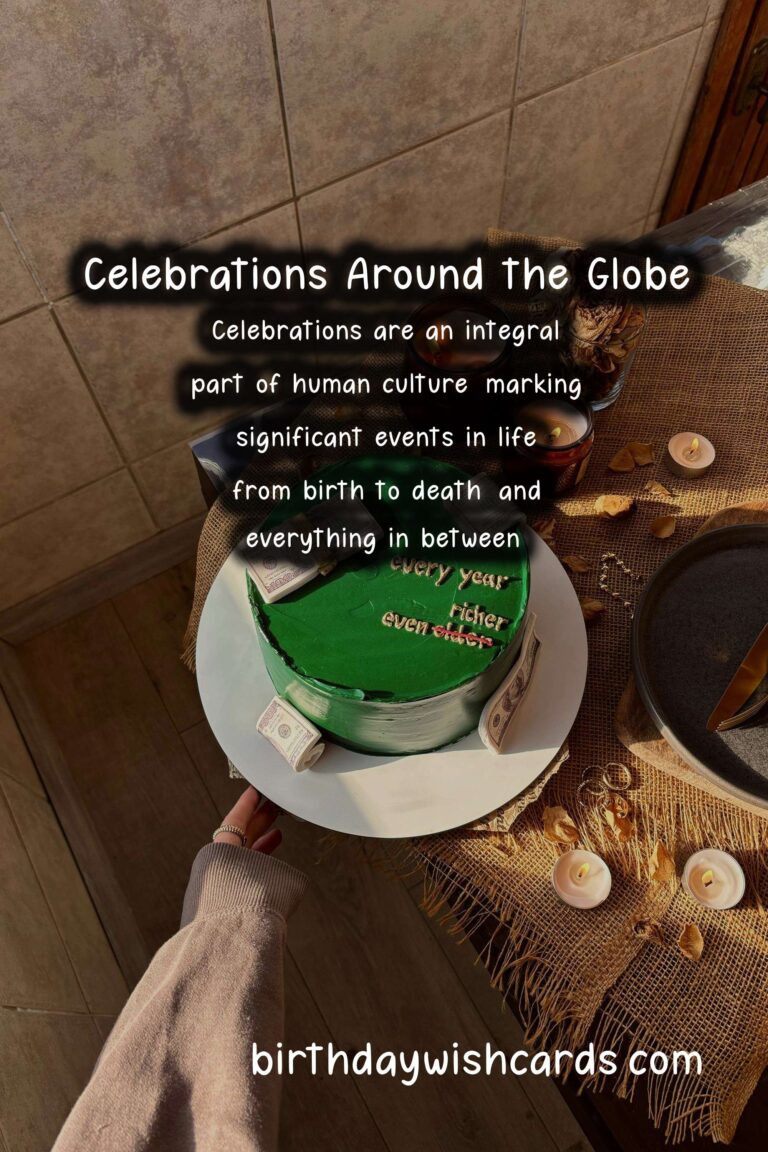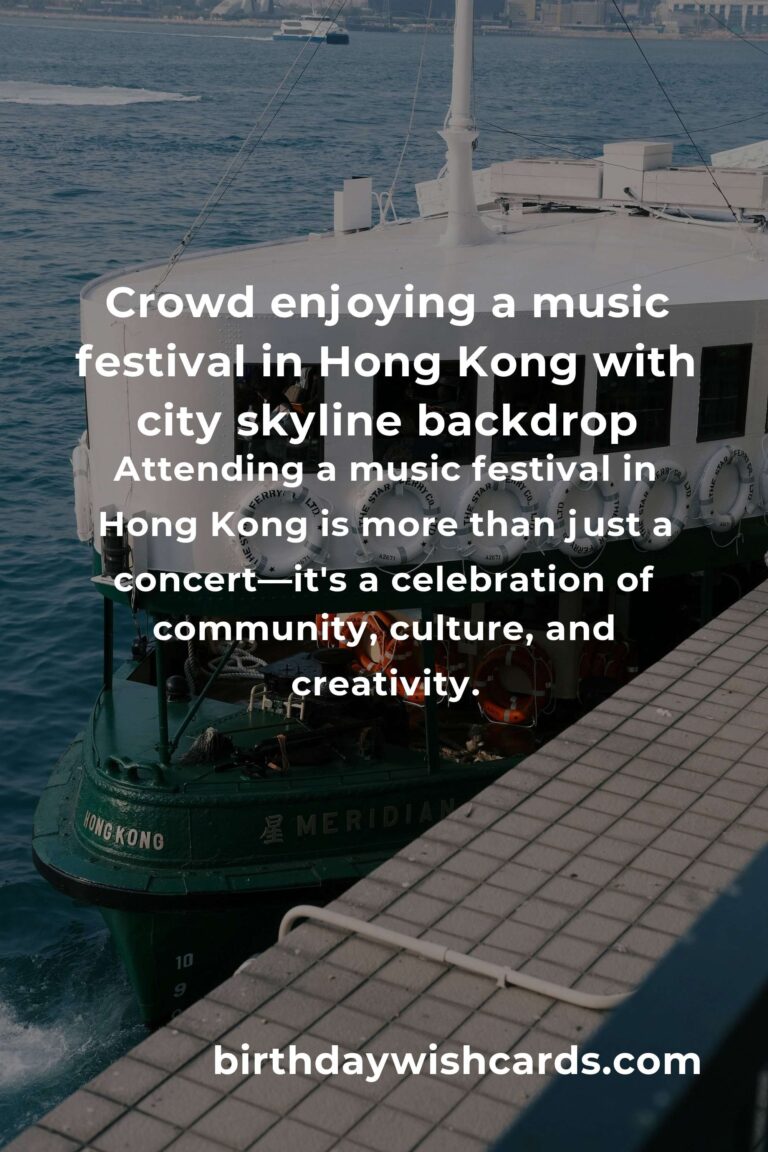
Celebrations are an integral part of human culture, marking significant events in life from birth to death, and everything in between. However, the way people celebrate can vary greatly from one country to another. Understanding the etiquette surrounding these celebrations can lead to an unforgettable experience.
The Importance of Celebration Etiquette
Celebration etiquette is crucial for promoting respect and understanding between cultures. By adhering to local customs, you’re not only showing appreciation for the traditions of the place you are visiting, but also enhancing your own experience.
1. Birthday Celebrations
United States
In the United States, birthday celebrations can range from a simple family gathering to elaborate parties. It is customary for the birthday person to receive gifts, and it is considered polite to open them in the presence of the givers.
Japan
In Japan, although birthdays are celebrated, a significant emphasis is placed on age milestones such as the Shichi-Go-San festival for children aged seven, five, and three. It is essential to give gifts that reflect the recipient’s age and status.
2. Weddings
India
Indian weddings are known for their grandeur. Guests may face a series of pre-wedding functions, including engagement ceremonies and mehndi (henna) parties. It is customary to arrive with gifts and to participate in rituals, demonstrating your involvement in the union.
Scotland
In Scotland, weddings often involve a celebration called the “ceilidh,” a traditional dance party. Attendees are expected to dress formally, and participation in dancing signifies joy and acceptance.
3. Religious Celebrations
Christmas Worldwide
While Christmas is celebrated in many cultures, traditions vary significantly. In the U.S., many celebrate with a family dinner and gift-giving, while in Germany, the Advent season is equally important, and decorating Christmas markets is a tradition.
Eid in Muslim Countries
Eid is a religious holiday that emphasizes community and sharing. It’s common practice to dress in your best clothes, partake in communal prayers, and offer gifts, especially to children.
4. National Holidays
Independence Day in the United States
Fourth of July celebrations typically include fireworks, barbecues, and parades. It’s customary to display the American flag and to be respectful during national anthems.
Bastille Day in France
Bastille Day on July 14th is celebrated with fireworks, parties, and military parades. When attending celebrations, be sure to embrace the French culture, participate in dance, and enjoy the community spirit.
5. Festivals
Diwali in India
As the Festival of Lights, Diwali is celebrated with much fervor and involves lighting oil lamps, sharing sweets, and performing prayers. Respect for this ancient tradition is crucial, and it’s common for families to invite friends over to partake in festivities.
Carnival in Brazil
Brazil’s Carnival is a vibrant festival renowned for its parades and samba music. When participating, it’s essential to join in the festivities wholeheartedly, while respecting the cultural significance of the event.
6. New Year’s Celebrations
China
Chinese New Year, also known as Lunar New Year, is an essential celebration that involves family reunions and traditional dishes. Engaging in customs, such as giving red envelopes of money, is fundamental.
Times Square, New York
In New York, the Times Square countdown to the New Year is iconic. Attendees often dress warmly and arrive early to secure a good spot. It is important to follow local rules for safety and may also involve personal etiquette such as being respectful to others in close quarters.
Conclusion
Understanding and respecting celebration etiquette around the world can significantly enhance your travel experiences and connections with people. Each culture has its unique practices, and embracing them will ensure your participation is thoughtful and meaningful. Whether celebrating a birthday, a wedding, or a national holiday, always be aware of local customs and show appreciation for the culture you are celebrating.
Celebrations are an integral part of human culture, marking significant events in life from birth to death, and everything in between. Understanding the etiquette surrounding these celebrations can lead to an unforgettable experience. 









#CelebrationEtiquette #CulturalUnderstanding #GlobalFestivities




